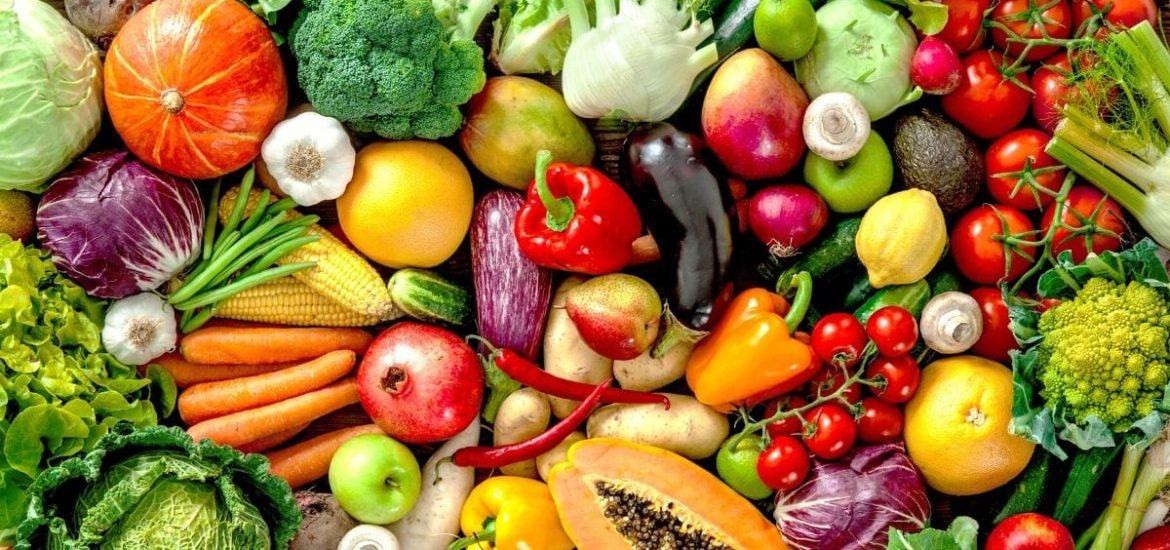
Healthier food choices can benefit the environment as well, according to a study published on 24 October in Proceedings of the National Academy of Sciences, providing the most elaborate analysis of diet and environmental impacts to date (1).
The authors claim that foods purported to be harmful to health, such as red meat, are also harmful to the environment. On the other hand, foods associated with improved health often have low environmental impacts. So, dietary transitions that lower incidences of noncommunicable diseases might also be more environmentally sustainable.
The findings support recent recommendations published in the UN’s Intergovernmental Panel on Climate Change report in August, which highlighted the benefits of plant-based foods for both human health and the environment.
The researchers from the University of Minnesota and Oxford University examined 15 foods common in western diets and connected the health impacts of these foods to their overall environmental impact. The foods were then associated with 5 potential health outcomes in adults and 5 aspects of agriculturally driven environmental degradation.
More specifically, the researchers looked at plant-based items including fruits, vegetables, legumes, nuts, potatoes, refined grains and wholegrain cereals, and sugar-sweetened beverages and animal-based foods such as raw and processed red meat, chicken, dairy products, eggs, and fish.
Then using data from previous studies on diet and health outcomes of tens of millions of people, they calculated the increased risk of disease, including heart disease, stroke, type 2 diabetes and colorectal cancer, associated with eating one extra portion of each food per week. And in addition, they assessed the potential environmental harm such as greenhouse gases emissions, water use, and pollution caused by each additional portion of food relative to an equivalent portion of vegetables.
Foods associated with the best health outcomes like whole-grain cereals, fruits, vegetables, legumes, nuts, and olive oil were found to have the lowest environmental impacts. Whereas, unprocessed and processed red meat including pork and beef, caused the biggest increase in disease risk and the largest environmental impact.
Of course, there are exceptions to the rule. For example, fish has a moderate impact on the environment but is beneficial to human health. In contrast, sugary drinks have a minimal environmental impact while posing significant health risks. Moreover, red meat has well-recognised environmental impacts, however, whether or not unprocessed red meat is detrimental to human health remains controversial.
Nonetheless, the research can certainly inform more sustainable dietary choices. For example, the researchers hope to display this information on new food labels currently being developed, stating both health and environmental impacts. And this new data will also provide more detailed information to help guide the decisions of not only consumers but policymakers and food companies.
The authors conclude that replacing harmful foods like red meat with healthy foods with only moderate environmental impacts, such as refined grain cereals, dairy, eggs, and chicken, could greatly improve human health and at the same, reduce environmental harm.
Although controlling what people eat is pretty impossible, providing as much information as possible on the health and environmental impacts of certain foods might persuade more people to make healthier diet choices and adopt more sustainable diets.
(1) Clark, M.A. et al. Multiple health and environmental impacts of foods. Proceedings of the National Academy of Sciences (2019). DOI: 10.1073/pnas.1906908116
It’s interesting that you mention that eating healthy foods is good for the environment. I want to do my part to save the planet, so I’m considering shopping at a health food store. I’m going to search for a reputable health food store in my area to use.
A healthy balanced diet is not given enough credit for, as it plays a major role in managing a person’s health.
Your post has beautifully and expertly explained the significance of healthy diet. It’s full of relevant and useful information.
Thanks for it. Keep up the great work!!!
Eating healthy can be considered fun, tasty, and productive, not as something you dread the moment you rise groggily until you push yourself unconscious. It’s not pleasant to starve, and it’s not healthy either, but it’s also not pleasant to feel like a balloon.
I loved your article and its beneficial content.
This is an outstanding post that’s filled with so many useful nuggets. Thank you for being so detailed on healthy diet.
eating healthy is good habit
but these days people go for taste they don’t think about healthy and unhealthy
Good work and keep it up…